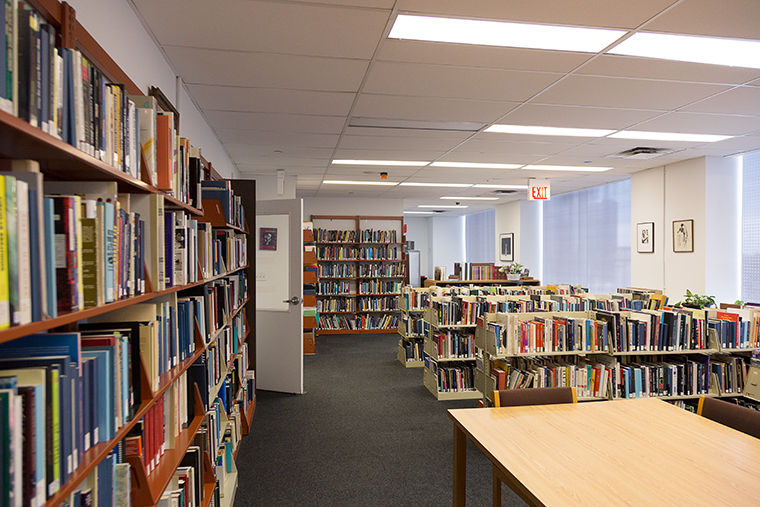Center for Black Music Research to fortify resources through curricular merge
April 4, 2016
After layoffs and other downsizing measures, the Center for Black Music Research will be smaller and be combined with Columbia’s library, archives and curriculum, according to Senior Associate Provost Suzanne Blum Malley.
In a March 24 email announcing the integration, Blum Malley noted that the center, located in the 618 S. Michigan Ave. Building, has been a resource worldwide for many students to expand their knowledge of black music history.
Janet Harper, a librarian who works in the center, said the facility has helped students through outreach and assistance with class assignments. Harper said the center has given presentations on different forms of black music, such as blues, calypso and soul.
Rosita Sands, interim chair of the Music Department, will serve as the interim director of the center, and Nathan Bakkum, associate chair of the Music Department, will serve as its associate director, according to the email. Both directors will lead a search to find a new faculty director from the music department by the fall of 2017.
Scott Hall, a senior lecturer in the Music Department and the director of the Jazz Studies program, said there has not been a strong connection with the center and the Music Department through the years, so its curricular integration would be a positive step toward bridging that gap.
“What has happened is the resources at the center have been diminished severely over the last several years,” Hall said. “It has hit the bottom of that, and now it can only grow.”
Andrea Meza, a senior music major, said she has worked at CBMR since spring break of 2015. She said since working there, she has developed a greater understanding of black music’s widespread cultural influence.
“[Black music] is such a diverse body of music,” Meza said. “I had known it before, but here I have so many tangible examples.”
Meza said she sees the merger as an advantage that will expand what the center is doing for researchers. She said she thinks the center could find a way to stand on its own while being integrated into the curriculum, but the center should remain its own entity.
“Measures could be taken so certain opportunities are not lost,” Meza said. “I would hate to see the [connections] diminish with the researchers that come here from across the globe if we did not hold that special destination as our own space.”
With the center’s integration into the library, Sands said the college is affirming its commitment to ensuring the continuation and advancement of the center, and those supporting the center hope to see increases in digitization of the collection, making for greater student access.
“Right now, we are a research library, so people come here from all over the world to use materials,” Sands said.
Bakkum said he thinks the integration comes from interested faculty who want to draw it into required courses and into the departmental mission.
Jan Chindlund, dean of the library, said the center, the college’s library and the archives have a strong relationship.
“This [relationship] gives us an opportunity to share what we are each doing in technology and best practices in archives and library policies and procedures,” Chindlund said. “We will be able to enhance the work in both arenas.”
Chindlund said the college is a member of the Chicago Collections Consortium that shares collections online. She said the CBMR and the library will take advantage of their consortial relationships to provide more access to collections.
Bakkum said the center’s integration will still allow it to meet the college’s standards of diversity.
“Black music is an entry point to music across the globe and many different traditions,” Bakkum said. “When we think about the center addressing black music and culture across the globe, the expansiveness of the idea of black music is one that demonstrates commitment to diversity.”
Hall said he does not see any downsides to the integration, and it is something the department has sought for many years.
“The Center for Black Music Research has a huge international reputation,” Hall said. “That is something the Music Department wants to retain and foster.”








